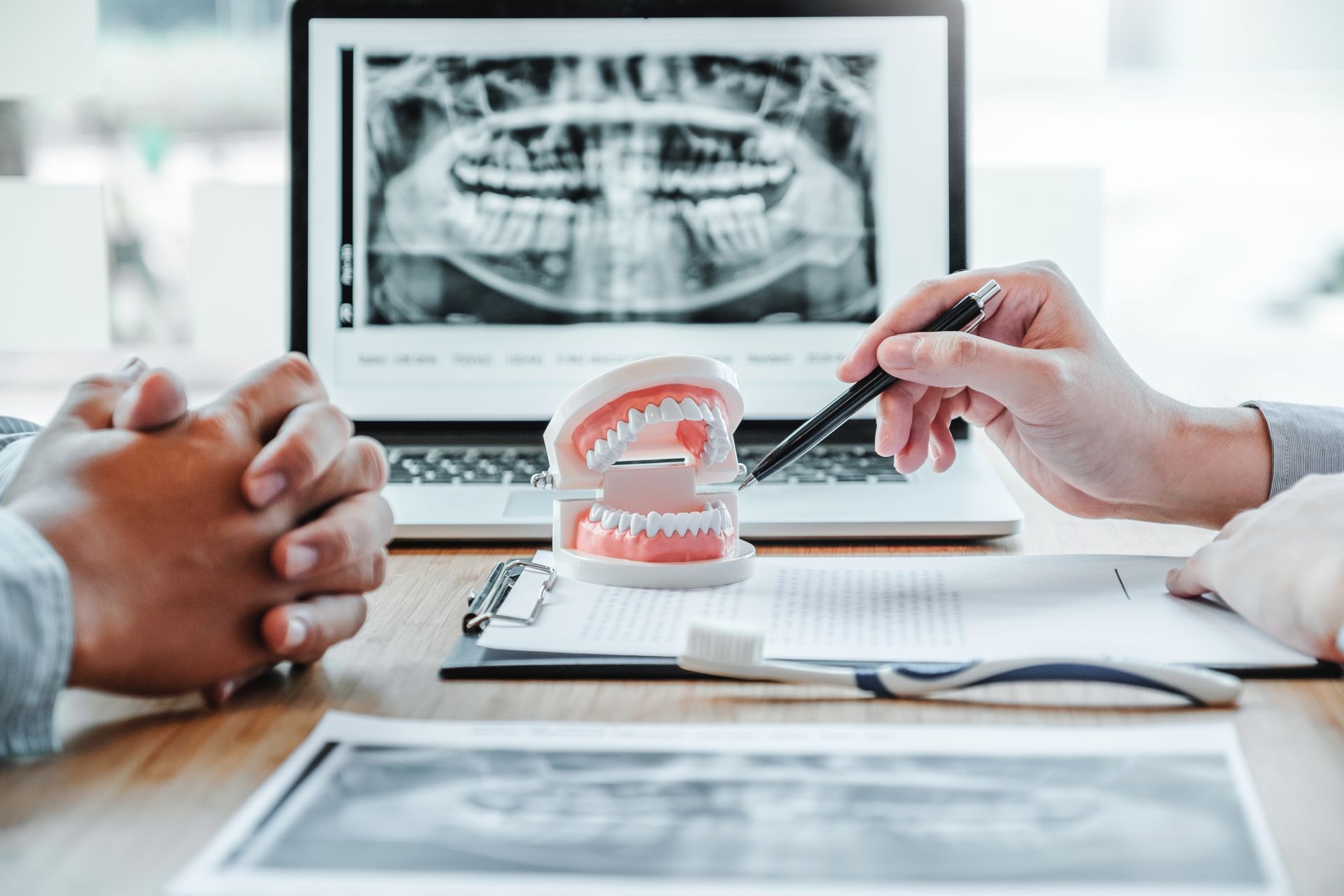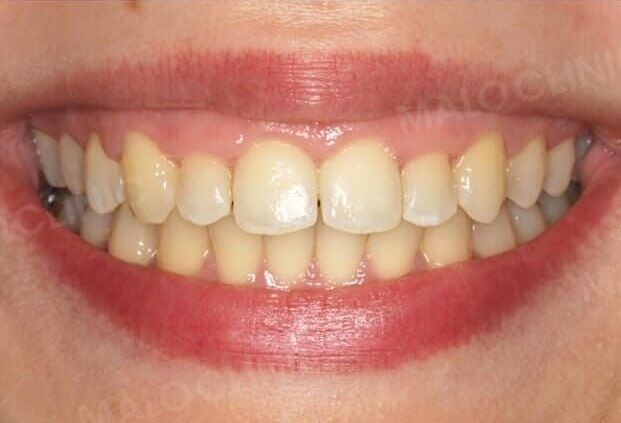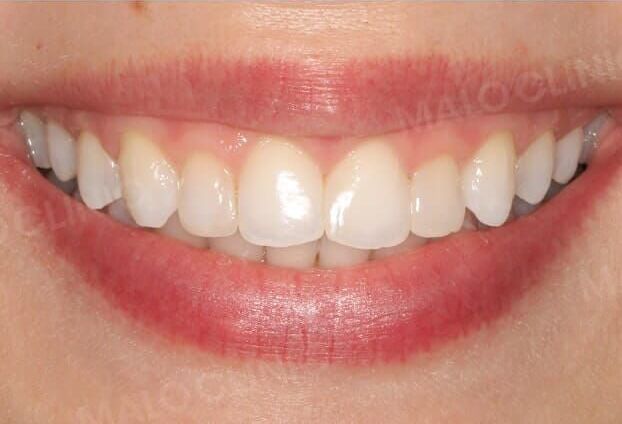Periodontology
Periodontology or periodontics is a dental specialty that deals with the prevention, diagnosis and treatment of periodontal diseases, which are divided into two large groups: gingivitis and periodontitis.
Periodontitis and gingivitis are diseases that affect the set of tissues that include the gums, the bone and the periodontal ligament, which is responsible for maintaining the firmness of the teeth in the jaw, and are the result of the accumulation of bacteria in the tissues of the oral cavity.
The deposit of plaque and tartar in the groove between the gums and teeth causes chronic inflammation which, as well as causing pain in the gums, destroys all the tissues that support the teeth.

Although anyone with poor oral hygiene can develop inflammation of the gums - swelling, bleeding and sometimes pain in the gums - some factors, such as pregnancy, puberty, poorly positioned teeth or the use of dentures that are difficult to clean, increase the risk of this pathology.
If not diagnosed and treated in good time, this inflammation of the gums develops into a more serious and complex problem: periodontitis. Bone loss becomes irreversible, teeth begin to wobble and even fall out. Stress, smoking, genetic factors or diseases such as diabetes are all risk factors for the onset of periodontitis.
Periodontitis affects a large part of the population and is responsible for most tooth loss in adulthood.
Benefits of Periodontology for oral health
Prevention of Periodontal Diseases
Periodontology focuses on prevention, providing guidance on oral hygiene and gum care to avoid pathologies such as gingivitis and periodontitis.
Specialized Treatment
Periodontologists use specific techniques and treatments to combat gum disease, such as root straightening, periodontal surgery and laser therapy.
Maintaining Natural Teeth
By treating and controlling periodontal diseases, periodontology helps preserve natural teeth, preventing premature tooth loss or the need for extractions.
Improving General Health
Periodontal health is closely linked to general health. Proper treatment of the gums can help prevent and control systemic diseases such as heart disease and diabetes.
Pathologies that the Periodontology specialty can treat

Gingivitis
Inflammation of the gums, usually caused by bacterial plaque. Treatment of periodontology includes professional scaling and guidance on good oral hygiene practices.

Periodontitis
If left undiagnosed and untreated, gingivitis can progress, leading to the loss of bone tissue and teeth. Treatment for periodontitis includes procedures such as root straightening, and sometimes periodontal surgery.

Gingival recession
A condition where the gums recede, exposing the roots of the teeth. Treatment of periodontology may include deep cleaning or gum grafts to cover the exposed areas.

Periodontal abscesses
Acute infections of the gums that can cause severe pain and swelling. Treatments of periodontology include drainage of the abscess, antimicrobial therapies and treatment of the cause.

Peri-implantitis
Inflammation in the tissues around the dental implant, which can even lead to the loss of the implant if not treated properly. Treatments of periodontology include deep cleaning and, in some cases, surgical interventions to restore the health of the tissues around the implant.
Clinical Cases


Multidisciplinary case with gingivectomy
Our Clinical Team is here to help you!
Clinical Team
FAQ's
1. What is periodontitis and how can it be prevented?
Periodontitis is a serious inflammation of the gums that can destroy the bone supporting the teeth. It can be prevented with good oral hygiene, including daily brushing and flossing, and regular visits to the periodontologist and oral hygienist.
2. What are the symptoms of periodontal disease?
Symptoms include red, swollen and easily bleeding gums, persistent bad breath, receding gums and teeth that are mobile or progressively moving apart.
3. How is periodontitis treated?
Treatment of periodontitis can include teaching brushing techniques and interdental cleaning, root planing (procedure removes plaque and tartar from the surface of the teeth and roots), antimicrobial therapies and sometimes periodontal surgery to clean out deep pockets and regenerate affected or lost tissue.
4. Can gum recession be corrected?
Gum recession can be treated, but the treatment varies depending on the stage at which the condition is diagnosed. The most common treatment is a thorough root cleaning to remove plaque and tartar that is lodged under the gums and between the teeth. In the case of more localized recessions, gum grafting may be necessary to regenerate the lost gum.
5. What is the link between periodontal health and general health?
Studies show that periodontal health is linked to general health. Periodontal disease has been linked to conditions such as heart disease, diabetes, pregnancy complications and other systemic diseases, as bacteria from the mouth enter the bloodstream and spread to the rest of the body. Maintaining good periodontal health can help prevent these problems.
6. What causes periodontal disease?
The main cause of periodontal disease is plaque, a sticky film of bacteria that constantly forms on the teeth. Factors such as smoking, diabetes, genetic predisposition, poor oral hygiene and certain medical conditions can increase the risk of developing periodontal disease.
7. How can I prevent tooth loss due to periodontal disease?
Prevention involves a combination of good oral hygiene, including daily brushing and flossing, regular visits to the dentist for check-ups and avoiding risk factors such as smoking. Maintaining a healthy lifestyle, including a balanced diet, can also help.
8. What is the difference between gingivitis and periodontitis?
Gingivitis is the initial form of periodontal disease, characterized by inflammation and bleeding of the gums, without bone loss. If left untreated, it can develop into periodontitis, a more serious form that involves the destruction of the supporting tissues of the teeth, including bone.
9. Is periodontal disease hereditary?
Although bacterial plaque is the primary cause of periodontal disease, genetic predisposition can increase the risk. If there is a family history of periodontal disease, it is important to be especially diligent with oral hygiene and visits to the periodontologist.










